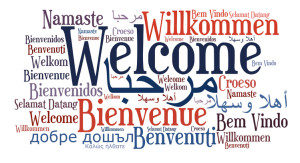How Similar Languages Make Learning Easier

It is common knowledge that English originated in Northern Europe and later spread across the globe. Yet, many English speakers assume that learning other languages, particularly European ones, is daunting. The truth is that several languages are closely related to English, making them much easier to learn. If you’ve ever wondered, “What is the easiest second language for English speakers?”, the answer lies in these similarities.
Table of Contents
For example, English shares roots with many closest languages to English, such as Germanic and Romance languages. These connections simplify grammar, vocabulary, and pronunciation for English speakers. If you’re looking for the easiest second language to learn, this list will guide you through practical options.
Germanic Languages Closest to English
Many people think of Afrikaans as an exotic language of South Africa, but it is actually one of the easiest languages for English speakers to learn. Its pronunciation and phonetics are quite similar to English, and it features very simple grammar. Afrikaans lacks verb conjugations, genders, or complex pronouns. Once you grasp the basic vocabulary, Afrikaans becomes very easy to speak.
Although Danish is often considered the most difficult Scandinavian language to master, its grammar is quite similar to English, with only nine verb forms (three fewer than English). Norwegian, on the other hand, is even easier to learn for English speakers. Its grammar is straightforward, with no conjugations for numbers or people, and it features simple past and passive tenses. Norwegian pronunciation is also easier for English speakers compared to Danish.
Another Germanic language, Swedish, may pose a challenge in pronunciation, but its vocabulary and sentence structure (subject-verb-object word order) are very similar to English. These factors make learning Swedish manageable for English speakers.
Easiest Romance Languages for English Speakers
French is often considered the language of love, but it also shares a significant amount of vocabulary with English. In fact, almost one-third of English words are derived from French. While French grammar includes 17 verb forms (compared to 12 in English) and gendered nouns, learning its vocabulary can be relatively straightforward for English speakers.
Italian, another Romance language, is also easy for English speakers to learn. It features fewer verbs than both Spanish and French and is pronounced exactly as it is written. Portuguese is similarly accessible due to its limited use of prepositions and a straightforward approach to forming questions using simple intonation.
Romanian, the most Latin-based language still spoken today, is considered the most challenging Romance language. However, its strong Latin roots—80% of Romanian is Latin-based—make it easier for English speakers with a background in Romance languages. Lastly, Spanish is one of the easiest and most practical languages for Americans to learn. It has fewer vowel sounds than English and follows phonetic spelling rules, making pronunciation and comprehension simpler.
Related: Languages of Romania: What Languages Are Spoken in Romania?
Why Learn a Second Language?
Learning the easiest second language for English speakers not only enhances communication but also opens up global opportunities. From making travel easier to improving career prospects, speaking a second language has countless benefits. For example, many Scandinavian countries, known for speaking the clearest English, offer a gateway for English speakers to learn other languages while maintaining strong communication.
Final Thoughts
Whether you’re drawn to the easiest European language like Norwegian or a practical choice like Spanish, the key is to choose a language that excites you. The similarities between English and its closest relatives, whether Germanic or Romance, make the journey smoother. Start with a language that aligns with your interests, and you’ll find it easier to stay motivated.
Do you speak one of the languages from this list? How has speaking a second language benefited you?
Related:


